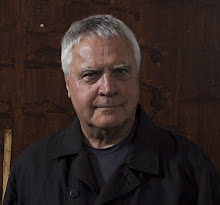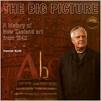
Auckland Opportunity
Auckland has an opportunity unique in its history to have effective and coherent local government. Sadly it is an opportunity in danger of being swamped in a babble of parochialism, political faction, indigenous outrage and half witted conspiracy theory. Somewhere in all that though there is a clumsy consensus.
No one looking rationally at what Auckland has been, could fail to agree that it was less a metropolis than a collection of squabbling villages, often with mutually exclusive agendas. The region cannot stay there and flourish. There must be a larger view and a more effective plan than five sets of everything.
Single City
Auckland needs a single city. It needs comprehensive regional plans. It needs a region wide plan for public transport. It needs an executive mayor elected at large. (There is no other way to establish a campaign that focuses on a region wide vision. But to have any other part of the process voted on at large would simply smother the aspirations of neighbourhoods and ensure that a sizeable chunk of the super council would stay hostage to faction or sectional interest.) It needs only one lean and efficient bureaucracy.
But it also needs a unitary government which will represent all of the city and not only parts of it. In that both the recommendations of the Royal Commission and the government’s version of them are wrong.
If government is listening
Government politicians have said they are listening. Whatever scepticism we might have about that, for the time being we ought to take them at their word and offer some coherent alternatives. If any are currently being offered they seem to have been lost in the scrum. The problem seems large and physically it is, but size is not an argument for complex political structures.
Simple solution
There is a simple solution. Overlaying the region which will become the super city, there is already and effective and democratic layer of government: 20 general electorates and two Maori electorates. Create under that structure 22 wards.
Elect the ward
Elect the ward and then empower the elected ward in turn to elect one of its number as a city councillor. That way transparency and accountability runs in a connected line from neighbourhood to city.
Better still, to succeed in that system will require political skills and commitment our local governance has to often sadly lacked. To arrive at a seat at the top table aspirant politicians will have to convince their neighbourhood first that they deserve to be there. This journey will also take them through the filter of their local ward
Community Assets
Each ward is responsible for its own community assets – community centres, swimming pools, libraries, local galleries or museums, local social services, playing fields and neighbourhood amenity.
Maori Wards
The Maori wards are responsible for urban marae, kohanga reo, Maori wardens, heritage and wahi tapu – not through any concept of mana whenua, as significant as that is - but because those communities have those assets and are entitled to take responsibility for them and no one else will.
Funding
Each ward is inventoried and, as a starting point, are funded from the general rate to maintain the assets they already have. Some reasonable formula would need to be devised for them develop those assets or to acquire those assets their ward has a deficit in.
While wards will have control over their community assets there is no need for any major devolution of bureaucracy. This is a management issue not one of policy which remains a central function.
Accountability - Transparency
Nonetheless each ward will have the final say as to how some policy is applied within their ward – issues like speed limits and safety are matters of neighbourhood after all - as is the mundane housekeeping of dog control, graffiti and public art. (There is a larger opportunity here to make community policing more relevant.) More importantly the wards must have a voice on how regional planning will impact on their community
Simple Super City
None of this seems complicated to me. Any system of government must evolve over time and any attempt at the outset to dot every ‘I’ and cross every ‘t’ will simply swamp what has to be a robust, fair and simple political infrastructure.
Past experience has taught us that the more complex the voting system the smaller the turn out. In this system the voter is confronted at the ballot box with a list of the candidates for the ward and the candidates for mayor. If they have done their job the punter will know who they are and if they are worth a tick.
The next challenge
Once this is in place and works, then there is a chance to deal with another issue of Auckland dysfunction. Not all of the region’s problems are made here. The Royal Commission hinted at that with its hybrid authorities – half super city and half central government. We need a unitary authority to confront and deal with that.





No comments:
Post a Comment